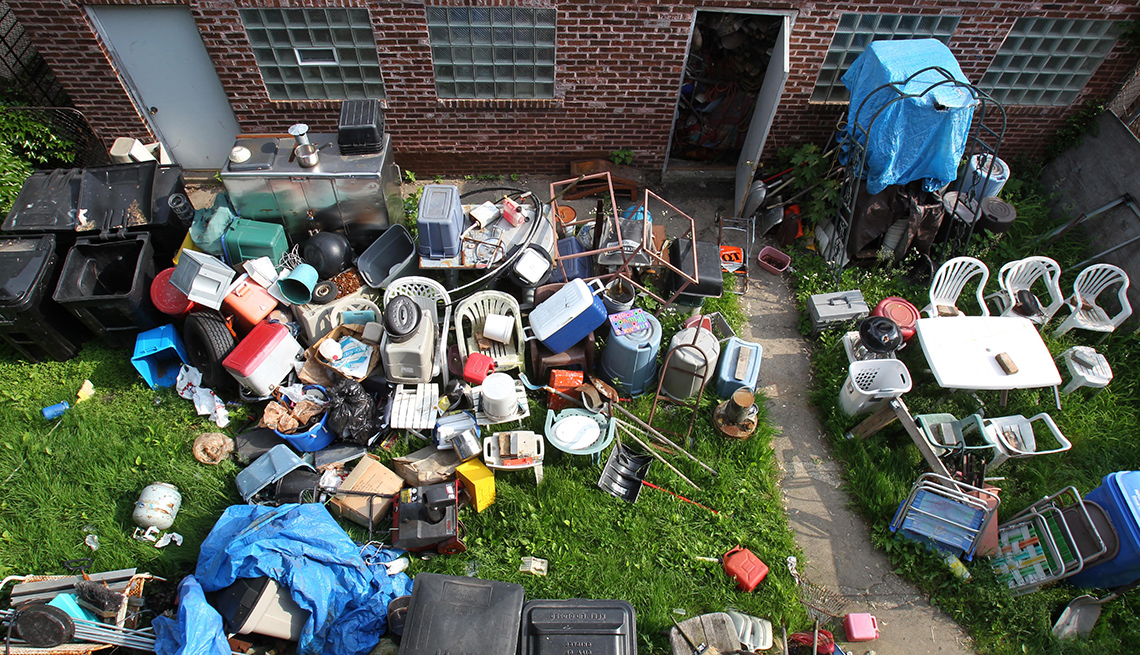AARP Hearing Center
| Moving a loved one is a lot of work under the best of circumstances. For caregivers of hoarders, the move can be especially overwhelming. Hoarding is a compulsive need to collect and keep things regardless of necessity or value. A hoarder can collect anything: newspapers, food, trash, clothing, recycling and even pets. This compulsion can be mild or severe.
The immediate need when moving a hoarder is to sort through and decide what stays and what goes. Hiring a professional organizer to work with your loved one through the sorting process may be your best bet. Often, hoarders grow immensely attached to their belongings, even though they seem irrelevant and unnecessary to us, and it is sometimes easier for an objective third party to get involved rather than family.
Who Can Help
The sorting process can take a fair amount of time so allow for this. Here’s where to find help:
- To find a professional organizer in your area, consult the National Association of Professional Organizers at www.napo.net. The site allows you to choose someone with a specialty in hoarding.
- If your loved one has a therapist or psychiatrist, inquire with him or her on recommendations for reputable organizers. Remember to ask your loved one for permission to speak to his or her therapist or psychiatrist.
- Visit the International OCD Foundation’s website to find a therapist in your area who has experience with hoarding. He or she may be willing to recommend a local organizer to you as well as help your loved one to cope with these dramatic changes.
Some states have assembled hoarding task forces, which combine the efforts of many agencies to help citizens with hoarding. Check your state’s website for information on whether there is such a task force in your area.
Long-term Help for the Hoarder
Hoarding behavior doesn’t stop once the mess has been eliminated and the move is complete. Often, it gets worse because the hoarder is distressed over the loss of his belongings. The compulsion of hoarding goes far deeper than the piles of accumulated stuff in and around a hoarder’s home. It is believed to be a behavior associated with a variety of psychological disorders, most commonly OCD, but also including bipolar disorder, depression and anxiety. So, even if you call in an entire team of professional organizers and get the immediate need under control, the problem will still exist — and those piles will likely build up again at your loved one’s new residence.
Because of this, hoarders need help beyond sorting through their belongings. They need counseling and support. There are a variety of mental health clinicians who specialize in hoarding. For help finding one, check out the International OCD Foundation’s resource page, ask health professionals working with your loved one for references, or check your local Area Agency on Aging for recommendations.



































































